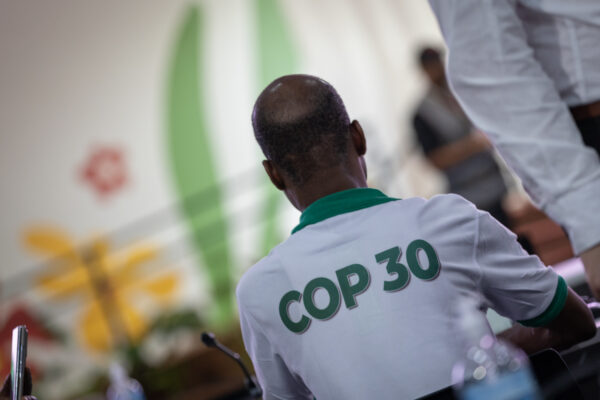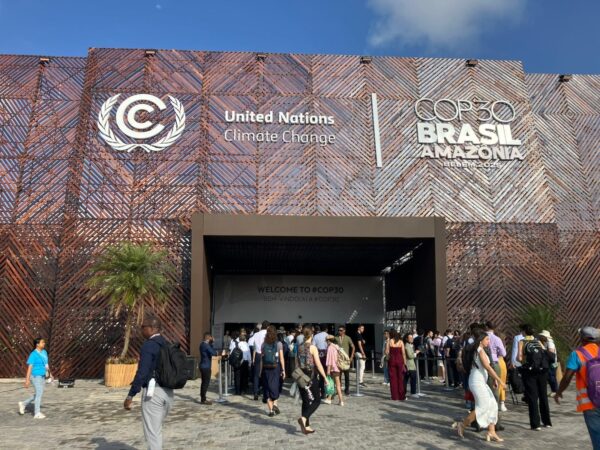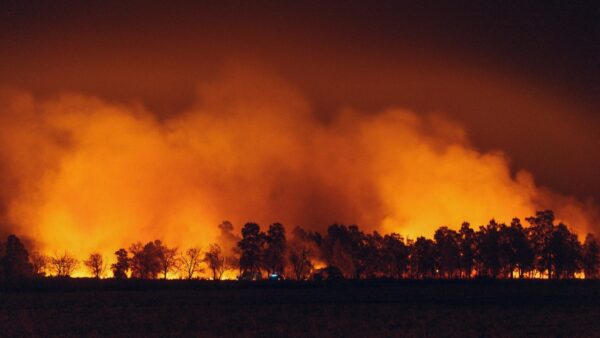Governments’ fossil fuel production plans continue to steer world further from Paris Agreement warming limits, 2025 Production Gap Report finds
Production Gap Report 2025 launches
Share

A major new report published today finds that 10 years after the Paris Agreement, governments plan to produce about more than double (120%) the volume of fossil fuels in 2030 than would be consistent with limiting global warming to 1.5°C, and 77% more than would be consistent with 2°C.
Achieving these plans would take the world further from the goals of the Paris Agreement, even as countries submit new climate commitments intended to fulfill their contributions to the pact. When this assessment was last performed in 2023, the fossil fuel production gap was 110% above the 1.5°C warming pathway and 69% more than the 2°C pathway. These findings underscore the importance of upholding the 2023 UAE Consensus at COP28 to transition away from the use of fossil fuels in energy systems and phase out inefficient fossil fuel subsidies.
The main findings of the 2025 Production Gap Report include:
- Since the 2023 analysis, governments now plan even higher levels of coal production to 2035 and gas production to 2050. Planned oil production continues to increase to 2050.
- To meet Paris Agreement goals of holding warming to well below 2°C while pursuing efforts to limit warming to 1.5°C, the world must now undertake steeper and faster reductions in fossil fuel production to compensate for lack of progress so far. Meanwhile, governments expanding fossil fuel infrastructure waste public funds on development destined to become stranded assets.
- Achieving these reductions will require deliberate, coordinated policies to ensure a just transition away from fossil fuels. While a few major fossil-fuel-producing countries have begun to align production plans with national and international climate goals, most still have not.
The 2025 Production Gap Report is produced by Stockholm Environment Institute (SEI), Climate Analytics, and International Institute for Sustainable Development (IISD). It assesses governments’ planned and projected production of coal, oil, and gas against global levels consistent with limiting global warming to 1.5°C or 2°C.
“In 2023, governments formally acknowledged the need to move away from fossil fuels to mitigate climate change – an obligation the International Court of Justice has now clearly emphasized,” says Derik Broekhoff, coordinating lead author of the Production Gap Report and Climate Policy Program Director at SEI’s US Center. “But as our report makes clear, while many countries have committed to a clean energy transition, many others appear to be stuck using a fossil-fuel-dependent playbook, planning even more production than they were two years ago.”
The 2025 Production Gap Report provides new analysis for 20 major fossil-fuel-producing countries responsible for about 80% of global fossil fuel production: Australia, Brazil, Canada, China, Colombia, Germany, India, Indonesia, Kazakhstan, Kuwait, Mexico, Nigeria, Norway, Qatar, the Russian Federation, Saudi Arabia, South Africa, the United Arab Emirates, the United Kingdom, and the United States. These profiles show that 17 of the 20 featured countries still plan to increase production of at least one fossil fuel to 2030. Eleven now expect higher production of at least one fossil fuel in 2030 than they had planned in 2023. On the other hand, 6 of the 20 profiled countries are now developing domestic fossil fuel production aligned with national and global net zero targets, up from four in 2023.
“To keep the 1.5°C goal within reach, the world needs rapid reductions in coal, oil, and gas investments, redirecting these resources toward an energy transition that prioritizes equity and justice,” says Emily Ghosh, coordinating lead author and Equitable Transitions Program Director at SEI US. “By COP30, governments must commit to expand renewables, phase out fossil fuels, manage energy demands, and implement community-centered energy transitions to align with Paris Agreement obligations. Without these commitments, delaying action further will lock in additional emissions and worsen climate impacts on the world's most vulnerable populations.”
More than 50 researchers from all over the globe contributed to the analysis and review, spanning numerous universities, think tanks and other research organisations.
“Ten years after Paris, renewables are way out in front of the pack. Instead of getting in the race, governments are blundering backwards towards our fossil past. While it’s frustrating seeing public money squandered on what will inevitably become stranded assets, it’s intolerably unjust to think about the human and environmental costs of these fossil expansion plans, especially for the most vulnerable.”
– Neil Grant, report co-author and Senior Expert at Climate Analytics
“Let this report be both a warning and a guide. Renewables will inevitably crowd out fossil fuels completely, but we need deliberate action now to close the gap on time. What we need now is courage and solidarity to move forward at great speed with the just transition.“ – Christiana Figueres, former Executive Secretary of the UNFCCC
“The increase in fossil fuel expansion plans over the last two years is alarming. While many governments see renewables as key to their energy security, others are betting against the clean energy transition. To avert the worst climate impacts with minimal economic disruption, governments need to commit to no new fossil fuels and back the clean industries of the future.”
– Olivier Bois von Kursk, report co-author and Policy Advisor at the International Institute for Sustainable Development











